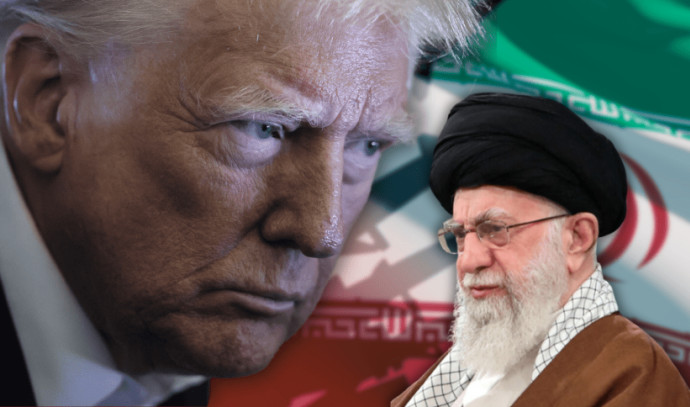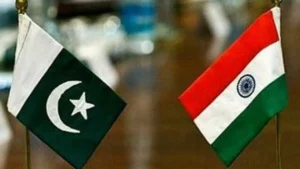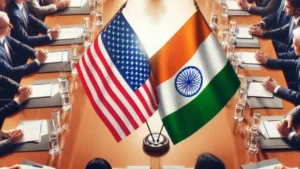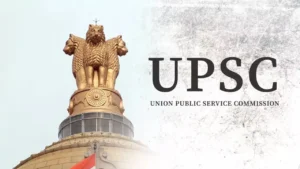Trump’s Surprising Reversal? Envoy Claims U.S. President Wants to Build Trust With Iran After Khamenei

In a stunning turn of events, recent reports suggest that former U.S. President Donald Trump may have been seeking to establish trust with Iran following statements from Supreme Leader Ayatollah Khamenei. This revelation, shared by a diplomatic envoy, challenges Trump’s previous hardline stance on Iran, raising questions about his true foreign policy intentions. Could this be a genuine shift in strategy or merely a tactical move? Let’s delve into the complexities of Trump’s approach toward Iran and the broader geopolitical implications.
Trump’s Past Approach to Iran
Donald Trump’s presidency was characterized by an aggressive stance on Iran. In 2018, he unilaterally withdrew the United States from the Joint Comprehensive Plan of Action (JCPOA), commonly known as the Iran nuclear deal, citing concerns that the agreement was too lenient on Tehran. This move triggered a cascade of tensions, with the U.S. imposing severe economic sanctions on Iran, leading to economic distress in the region.
Trump’s “maximum pressure” campaign was designed to cripple Iran’s economy, with the hopes of forcing Tehran to renegotiate a new, stricter nuclear agreement. Additionally, under Trump’s leadership, the U.S. conducted military actions against Iranian military leaders, including the assassination of General Qasem Soleimani in January 2020. This only further exacerbated hostilities between the two nations.
Given this history, the idea that Trump was seeking to build trust with Iran appears contradictory. So, what could have changed?
The Alleged U-turn: A Surprising Diplomatic Move?
According to a diplomatic envoy, Trump’s administration may have quietly explored backchannel discussions with Iran to de-escalate tensions and establish some level of trust. This revelation, if true, could suggest that Trump recognized the limits of his maximum pressure strategy and sought a more diplomatic approach in his final years in office.
Some analysts speculate that this change in tone might have been driven by political calculations. With a re-election campaign on the horizon, Trump may have sought to present himself as a dealmaker capable of resolving international conflicts. Given his administration’s efforts to negotiate peace agreements in the Middle East, such as the Abraham Accords, Trump might have entertained the idea of reducing hostilities with Iran as well.
Khamenei’s Role in the Shift
Iran’s Supreme Leader, Ayatollah Khamenei, has consistently maintained a skeptical stance toward the United States. He has repeatedly stated that Iran cannot trust American leadership, particularly after Trump’s withdrawal from the nuclear deal. However, Khamenei has also hinted at a willingness to negotiate under specific conditions, provided that Iran’s sovereignty and security interests are respected.
If Trump’s administration did indeed attempt to foster trust with Iran, it’s possible that Khamenei’s statements played a role in shaping this decision. The Iranian leadership has historically preferred negotiations that align with their long-term strategic interests, rather than those driven purely by U.S. political cycles.
Political and Strategic Implications
The potential shift in Trump’s Iran policy raises several important questions:
- Was Trump Genuine About Building Trust? If Trump did make a U-turn, was it a strategic attempt to ease tensions, or was it a political maneuver aimed at improving his chances in the 2020 election? Given his history of unpredictability, some analysts argue that any shift in tone was likely driven by immediate political calculations rather than a long-term vision for U.S.-Iran relations.
- What Would a Trump-Iran Deal Have Looked Like? If Trump had remained in office, would he have pursued a renegotiated nuclear deal with Iran? Unlike the Obama-era JCPOA, any Trump-led agreement would likely have had stricter conditions on Iran’s nuclear program and its regional activities. However, given Iran’s resistance to renegotiation, reaching an agreement would have been challenging.
- How Would This Have Affected U.S. Relations With Allies? The Trump administration’s decision to abandon the JCPOA strained relations with European allies who supported the agreement. A sudden shift toward diplomacy with Iran might have raised concerns about the consistency of U.S. foreign policy.
- What Does This Mean for Future U.S. Administrations? If Trump was indeed open to building trust with Iran, this could set a precedent for future administrations. President Biden’s approach to Iran has been more open to negotiations, albeit with careful strategic considerations. Understanding Trump’s potential change of heart could provide insight into how future Republican leaders might handle U.S.-Iran relations.
Reactions From Both Sides
Reactions to this potential shift have been mixed. Some conservative voices argue that Trump’s maximum pressure strategy was working and that any diplomatic outreach to Iran would have undermined this approach. On the other hand, some international policy experts believe that establishing trust, even through indirect channels, is crucial for reducing long-term conflicts.
From Iran’s perspective, skepticism remains high. Iranian officials have repeatedly emphasized that trust in the U.S. has been eroded due to past betrayals. Even if Trump had expressed a desire to build trust, Iranian leaders would likely have approached such efforts with extreme caution.
Final Thoughts
If the claims about Trump’s shift toward trust-building with Iran are true, this would mark a surprising reversal in his foreign policy approach. However, given his administration’s record of volatility, it remains unclear whether this was a genuine attempt at diplomacy or merely a tactical move.
Regardless, U.S.-Iran relations continue to be a complex and evolving issue. With the Biden administration facing its own challenges in dealing with Tehran, the question of how to effectively engage with Iran remains as relevant as ever.
Whether Trump’s alleged shift will have lasting implications or fade into the annals of diplomatic speculation is yet to be seen. What is clear, however, is that the geopolitics of the Middle East remain unpredictable, and the U.S.-Iran dynamic will continue to shape global affairs for years to come.



